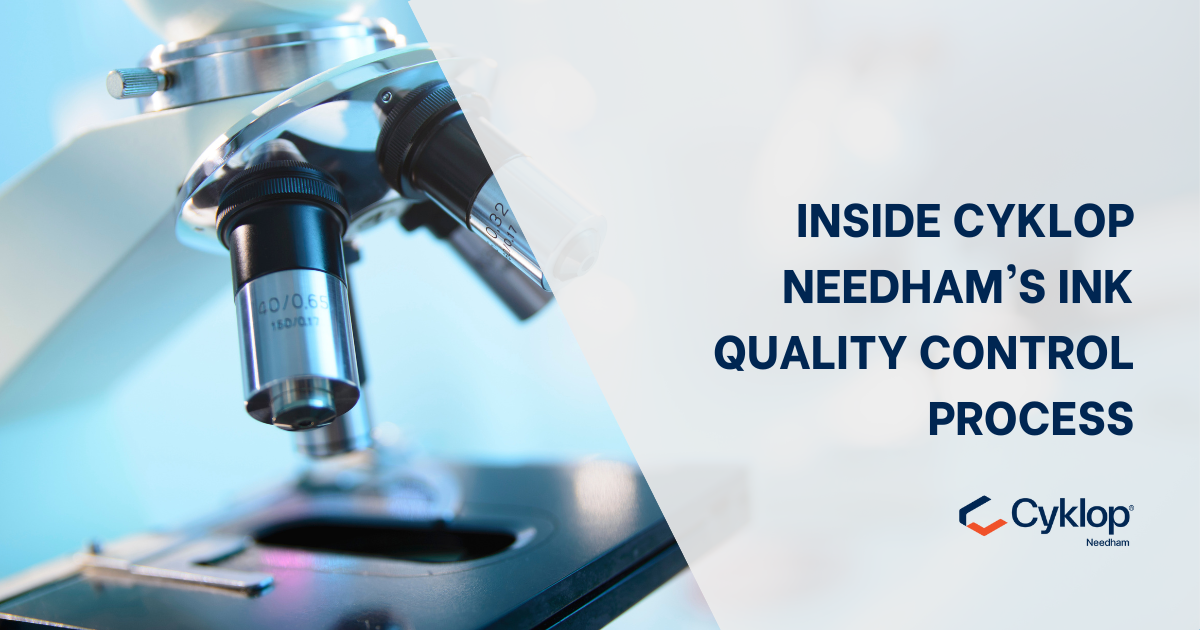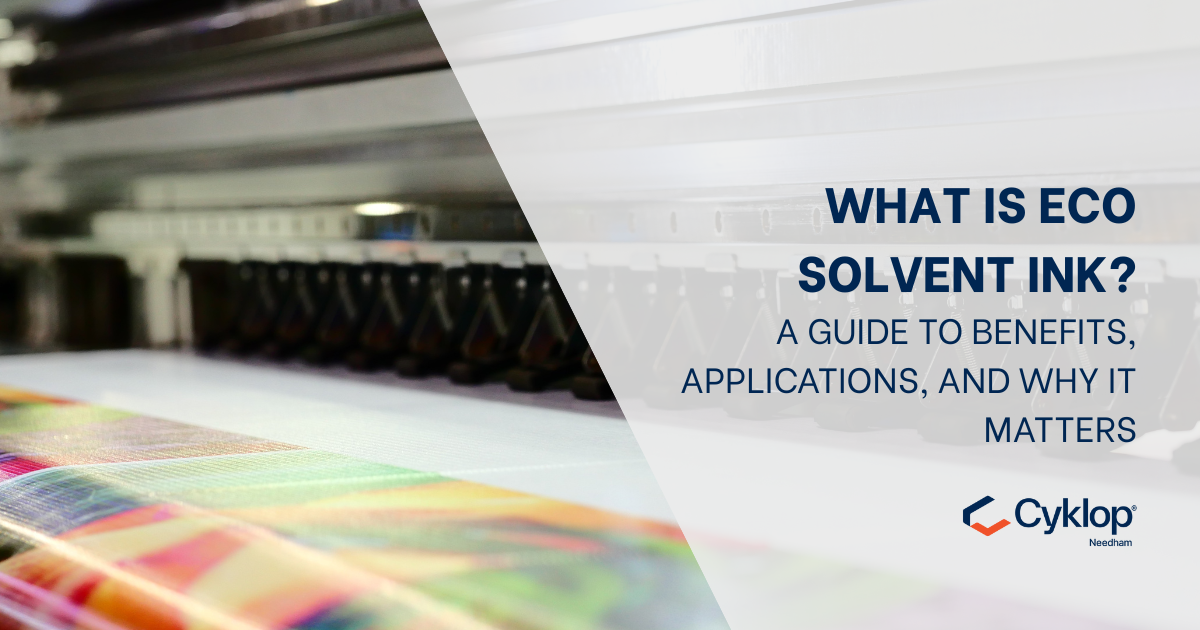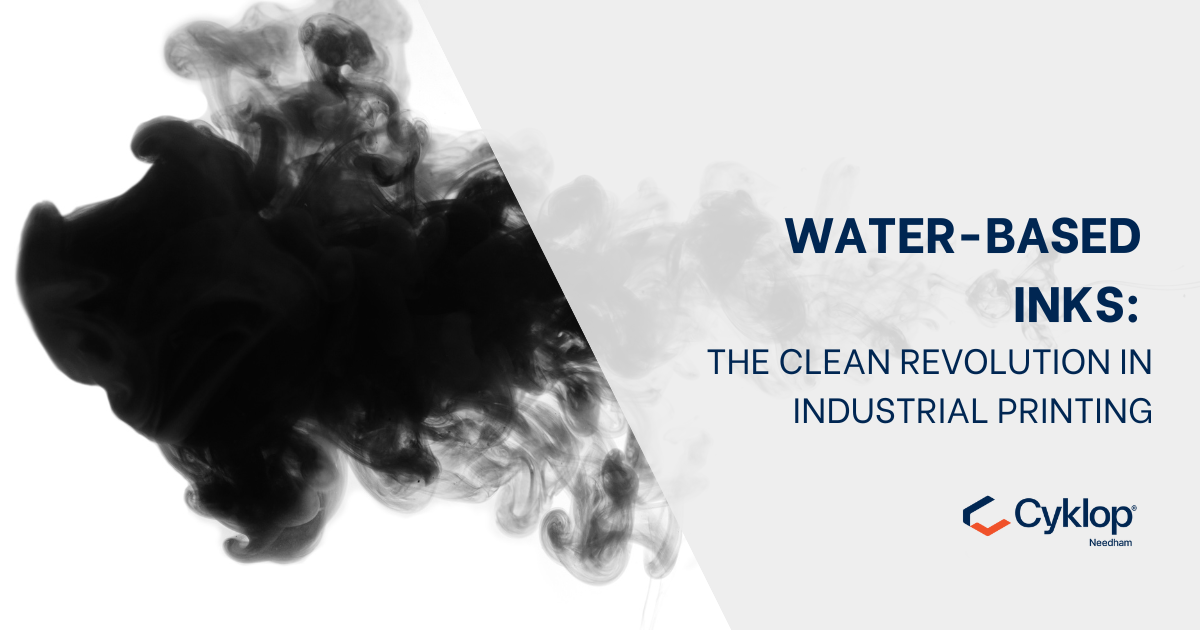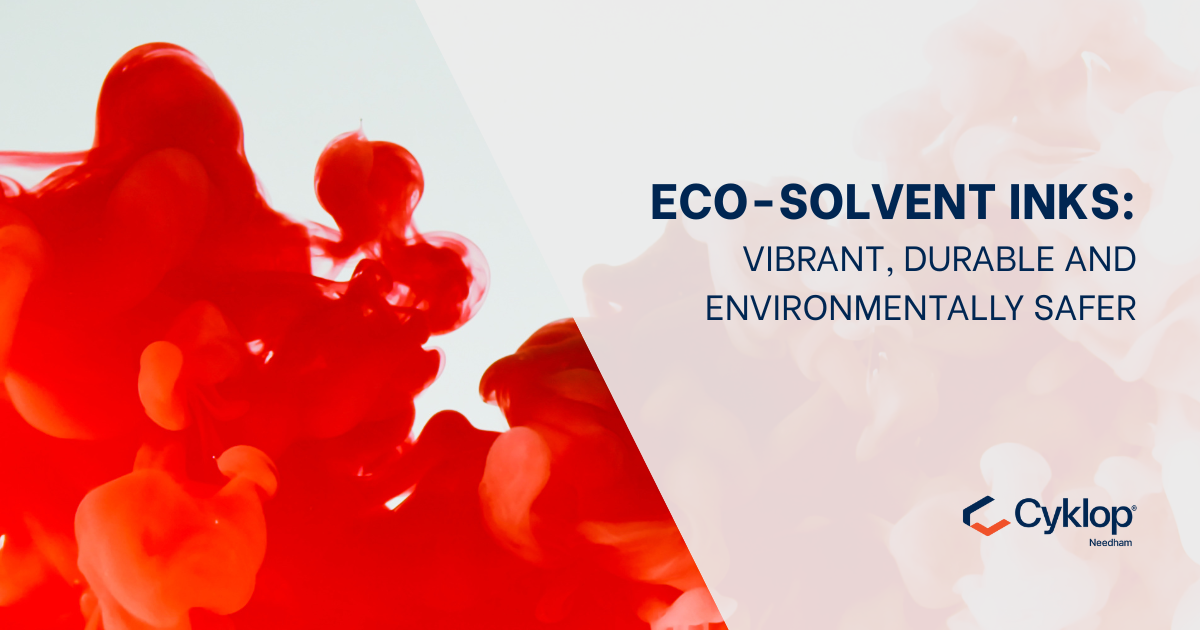What Is Eco-Solvent Ink? A Guide to Benefits, Applications, and Why It Matters
Eco-solvent ink has become a go-to solution in the world of large format printing, offering a low-odour, environmentally friendlier alternative to...
2 min read
Samuel Mcgarrigle
Mar 11, 2022 10:10:07 AM

At Cyklop Needham, we take pride in the inks we manufacture—not just for how well they perform, but for the strict quality standards each batch must meet before it ever leaves our facility. But what does that actually involve? What do we test, and how do we know the ink you receive is going to perform flawlessly?
Let’s take a closer look at the six critical tests we carry out to uphold what we proudly call “Needham Quality”.
With over 60 years of experience in ink formulation and manufacturing, Cyklop Needham supplies coding and marking inks to customers in over 73 countries. Our success has been built on long-term partnerships, continuous innovation, and an unwavering commitment to quality.
At our labs in Whitchurch and Newquay (UK), every ink formulation is subjected to a rigorous Quality Assurance (QA) process, ensuring exceptional colour accuracy, durability, and reliability.
Viscosity refers to the thickness or flow resistance of ink and is a key factor in how it performs during printing. It’s measured in centipoise (cP) and assessed using a heated chamber to ensure consistent testing conditions, as temperature impacts viscosity.
✔ Why it matters: Ensures correct flow through the printer and reliable droplet formation.
Surface tension determines the shape of the ink droplet and how it behaves on the substrate. We measure this using a Surface Tensiometer, with values reported in dynes/cm.
✔ Why it matters: Affects ink adhesion, spread, and drop accuracy.
Using a Spectrophotometer, we verify that colour values fall within the desired CIELAB (Lab) range*. We also perform a drawdown test—a manual swipe of ink on vinyl or similar surface—to detect contaminants and visually inspect colour vibrancy.
✔ Why it matters: Guarantees colour consistency across batches and substrates.
Specific gravity measures ink density and confirms that ingredients have been mixed in the correct ratios. A hydrometer is used to record how deep the tool sinks into the ink, indicating density.
✔ Why it matters: Ensures accurate chemical composition and stable performance.
For water-based inks, the pH value impacts pigment stability and how the ink interacts with the substrate. Using a pH meter, we verify that values are within the optimal range.
✔ Why it matters: Prevents pigment clumping or colour loss, maintains suspension stability.
Conductivity measures the ink’s ability to carry an electrical charge, critical for Continuous Inkjet (CIJ) systems that rely on charged droplets. Readings are taken using a conductivity meter with electrodes submerged in the ink.
✔ Why it matters: Ensures functionality in CIJ printers where charge-based deflection is essential.
While data from instruments is vital, we also apply human inspection and practical print testing to confirm results. If any parameter is off, the batch does not ship. Our chemists rework and re-test until every bottle meets our internal standards.
“Our goal is to always get it right the first time, every time—because our customers deserve nothing less.” – Cyklop Needham Quality Team
🧪 Over 60 years of ink expertise
🌍 Distributed in 70+ countries
👨🔬 UK-made, R&D-led products
🔬 Custom formulation available
💬 Friendly, honest customer service
Whether you need a bespoke ink for a unique surface, or you’re looking to switch from your current supplier, we’re here to make it seamless, reliable, and affordable.
📞 Call: +44 (0)1948 662629
📧 Email: enquiries@needham-ink.com
🌐 Visit: www.needham-ink.com

Eco-solvent ink has become a go-to solution in the world of large format printing, offering a low-odour, environmentally friendlier alternative to...

As sustainability moves to the top of the agenda across industries, water-based digital inkjet inks are gaining traction — not just for their ...

Eco-solvent inks offer a powerful blend of vivid colour, durability, and lower environmental impact—making them the go-to choice for outdoor signage,...